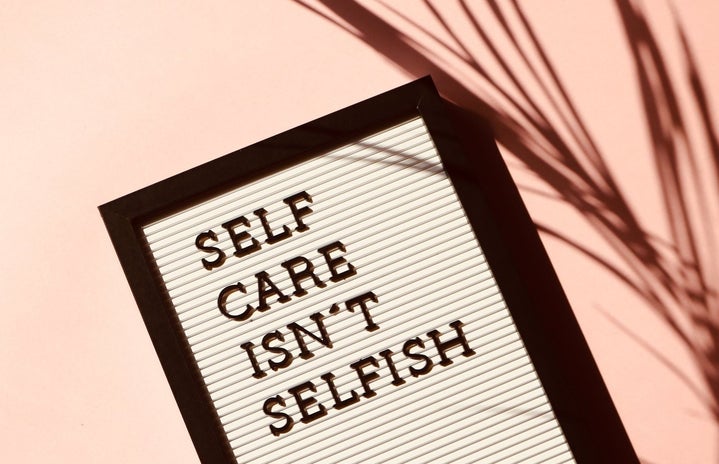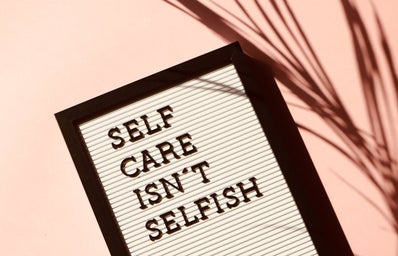When most of our days are spent in a small room or apartment, getting comfortable with being alone becomes more and more important. While some people are more comfortable with this social isolation than others, it’s important for everyone to regularly practice a bit of self care and love to make these COVID-19 days a bit brighter. I’m no expert in the self care world, but I’ve started incorporating a few small practices into my days that make a difference!
Figure Out What Self Care Means to You
When the word “self-care” is brought up, most people think of face masks, baths, and mindfulness meditations. It’s important to understand that self-care can look SO different from person to person. From getting outside to cleaning your room, FaceTiming a friend to spending an unplugged hour alone, self-care can be anything that makes YOU feel good and relaxed. Once you’ve found an activity/some activities that check this box for you, try to slowly incorporate them into your weekly schedule until you’re doing a little something for yourself everyday.
Start Off Slow & End the Same
I’m usually the type to roll out of bed, throw on some clothes, and quickly whip together some coffee before logging into Zoom classes for the day. Recently, I’ve started giving myself a bit longer (at least an hour) for my morning routine. Not having the time crunch allows my body and mind to wake up while I work out, make my breakfast, or gently plan out my schedule for the day. The same thing goes for a nighttime routine. Give yourself enough time to unwind from the day, so you get a good night’s sleep and wake up refreshed, ready to do it all again!
Schedule Some “Unscheduled” Time
Google Calendar is my best friend, but sometimes over-planning my days down to the minute can be a bit overwhelming. I purposefully leave gaps in my schedule, both during the day and at night after classes/meetings end, where I can take a break and do any stress-free activities, like catching up on one of my shows or taking some time to make myself a good lunch. I like having an idea of what my day will look like, so I create a to-do list the night before.
Make Use of Your Space
Even if you’re in a studio apartment, sometimes switching up your workspace from one side of the room to another can give you a fresh perspective. My Apple Watch continually bugs me to “stand up,” and although it can come at inconvenient times, I found that moving around my room or house for even a few minutes every hour or so helps prevent me from feeling sluggish and burnt out from work.
Acknowledge the Bad While Looking for the Good
Toxic positivity is 100% not the way to get through this time of social isolation. Some days will be more challenging than others, and “looking on the bright side” won’t always fix how you’re feeling long term. Try to remain positive and think of things/do things that make you happy, but don’t obsess over burrowing your negative thoughts every time they come up. It’s crucial to find a balance between letting negative emotions out and finding support, both within yourself and other resources, to make yourself happy.
As we come upon the first anniversary of social isolation fun, it’s more important than ever to prioritize wellness and your mental health. Whether you’ve mastered the art of self-care or are still figuring things out, make sure to consistently check in with yourself and adjust your self-care practices, big or small, so you’re helping yourself the best you can.



